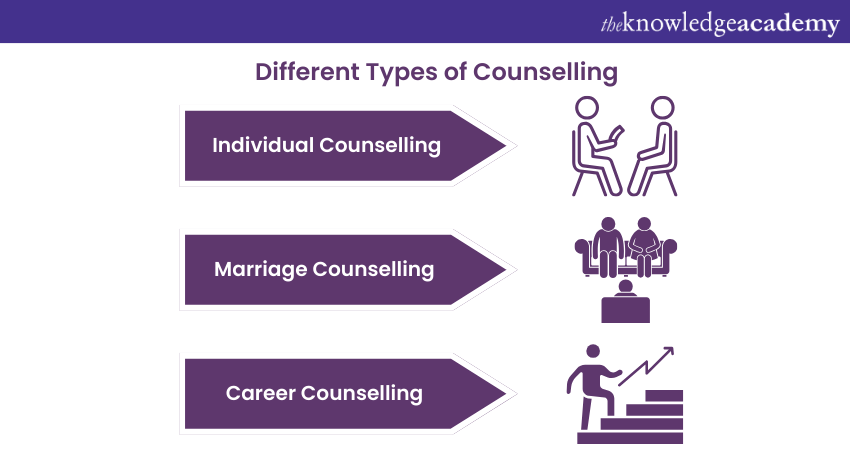A Comprehensive Guide to the Numerous Kinds of Therapy and Their Impact
Therapy encompasses a selection of healing strategies, each made to meet one-of-a-kind mental wellness needs. From the structured methods of Cognitive-Behavioral Therapy to the understanding nature of Person-Centered Therapy, these modalities supply distinctive paths to individual growth. Household therapy and Dialectical Behavior modification offer added frameworks for healing, while group counseling fosters neighborhood support. Understanding these varied approaches can illuminate their extensive influence on individual health. What remains to be discovered are the complexities of each technique.

Understanding Cognitive-Behavioral Therapy (CBT)
Although several restorative strategies exist, Cognitive-Behavioral Therapy (CBT) attracts attention due to its structured, goal-oriented nature. This form of treatment is based upon the facility that thoughts, feelings, and actions are adjoined, and by altering adverse idea patterns, individuals can change their psychological reactions and actions. CBT employs different methods, such as cognitive restructuring, which assists customers recognize and test distorted beliefs. Behavior activation motivates engagement in pleasant activities to fight depression.
Typically, CBT is a temporary treatment, typically lasting between 12 to 20 sessions, making it easily accessible for those seeking fast outcomes. Its efficiency has been well-documented in dealing with stress and anxiety problems, depression, and other psychological wellness issues. The specialist's duty is to assist clients with workouts and homework tasks, cultivating self-awareness and advertising long-lasting coping methods. This sensible technique equips people to take control of their psychological wellness, inevitably causing improved life complete satisfaction.
Checking Out Person-Centered Therapy
Person-Centered Therapy, developed by Carl Rogers, offers a contrasting strategy to Cognitive-Behavioral Therapy by stressing the client's subjective experience. This therapeutic design prioritizes the person's viewpoint, fostering a setting of empathy, genuine favorable respect, and authenticity. By enabling customers to explore their feelings and ideas without judgment, specialists facilitate personal growth and self-discovery.
The core tenet of Person-Centered Therapy is the belief that people possess the inherent capacity for self-healing and personal growth. In this setting, the specialist works as a supportive overview rather than a directive authority, urging customers to organize their very own trip. This method is specifically reliable for those grappling with concerns such as low self-worth, stress and anxiety, or anxiety, as it equips them to confront and recognize their emotions. Ultimately, Person-Centered Treatment grows a solid therapeutic partnership, cultivating trust and visibility vital for meaningful modification.
The Function of Household Treatment in Healing
Family therapy offers as a crucial component in the recovery procedure for individuals and their connections. This healing strategy concentrates on enhancing communication, dealing with disputes, and cultivating deeper connections amongst family participants. By attending to inefficient dynamics, family treatment urges each member to express their thoughts and feelings in a safe environment, advertising understanding and compassion.

The effect of family therapy extends beyond the sessions, as enhanced partnerships can lead to improved emotional well-being for all entailed. Generally, family members treatment plays a crucial duty in healing by cultivating unity, durability, and mutual support amongst member of the family, eventually assisting them toward a much healthier, a lot more fulfilling life with each other.
Unpacking Dialectical Behavior Modification (DBT)
Building on the structure of healing methods that improve emotional health, Dialectical Behavior modification (DBT) provides an organized framework for individuals dealing with intense feelings and behavioral obstacles. Developed by check here Marsha Linehan, DBT incorporates cognitive-behavioral methods with mindfulness methods, intending to assist clients take care of overwhelming feelings and boost social efficiency.
The therapy is specifically beneficial for those detected with Borderline Individuality Condition but is additionally suitable to an array of other mental health and wellness concerns. relationship therapy. DBT is composed of private therapy sessions and skills training teams, focusing on four crucial skill collections: mindfulness, distress tolerance, feeling policy, and interpersonal effectiveness
The Advantages of Team Coaching Sessions
While private treatment provides beneficial insights, team therapy sessions provide distinct advantages that can considerably boost the restorative experience. One crucial advantage is the feeling of community that arises amongst individuals. People commonly find comfort in sharing their experiences with others encountering similar challenges, fostering a helpful setting that reduces feelings of seclusion.
Additionally, group sessions Continued urge varied perspectives, allowing participants to pick up from each other's coping approaches and understandings. This cumulative knowledge can bring about improved problem-solving capacities and a wider understanding of individual problems.
Additionally, team counseling often advertises liability, as members motivate one another to seek their objectives and comply with their commitments. Finally, the cost-effectiveness of team therapy makes it an easily accessible choice for many people looking for support. Overall, the collective nature of team therapy sessions can substantially enrich the therapeutic journey.
Frequently Asked Questions
What Certifications Do Specialists Need to Exercise Counseling?
Therapists generally call for an appropriate level in psychology or therapy, along with monitored scientific experience. In addition, they must get proper licensure or accreditation to exercise legally, making sure adherence to professional requirements and ethical guidelines.
Exactly how Do I Select the Right Sort Of Therapy for Me?
Selecting the best kind of therapy entails examining personal demands, checking out numerous strategies, considering specialist specialties, and looking for recommendations. Recognizing specific objectives and choices can substantially improve the effectiveness and contentment of the restorative experience.

Are Online Therapy Sessions as Effective as In-Person Ones?
The efficiency of on-line counseling sessions compared to in-person ones typically depends on specific choices and scenarios. Research study indicates that both techniques can generate positive results, though some may find greater comfort in face-to-face interactions.
For How Long Does Therapy Commonly Last?

What Should I Expect Throughout My Initial Counseling Session?
During the very first therapy session, clients can expect an introduction, discussion of their issues, establishment of goals, and a summary of the counseling process - adhd counselling. This initial meeting intends to develop connection and guarantee comfort